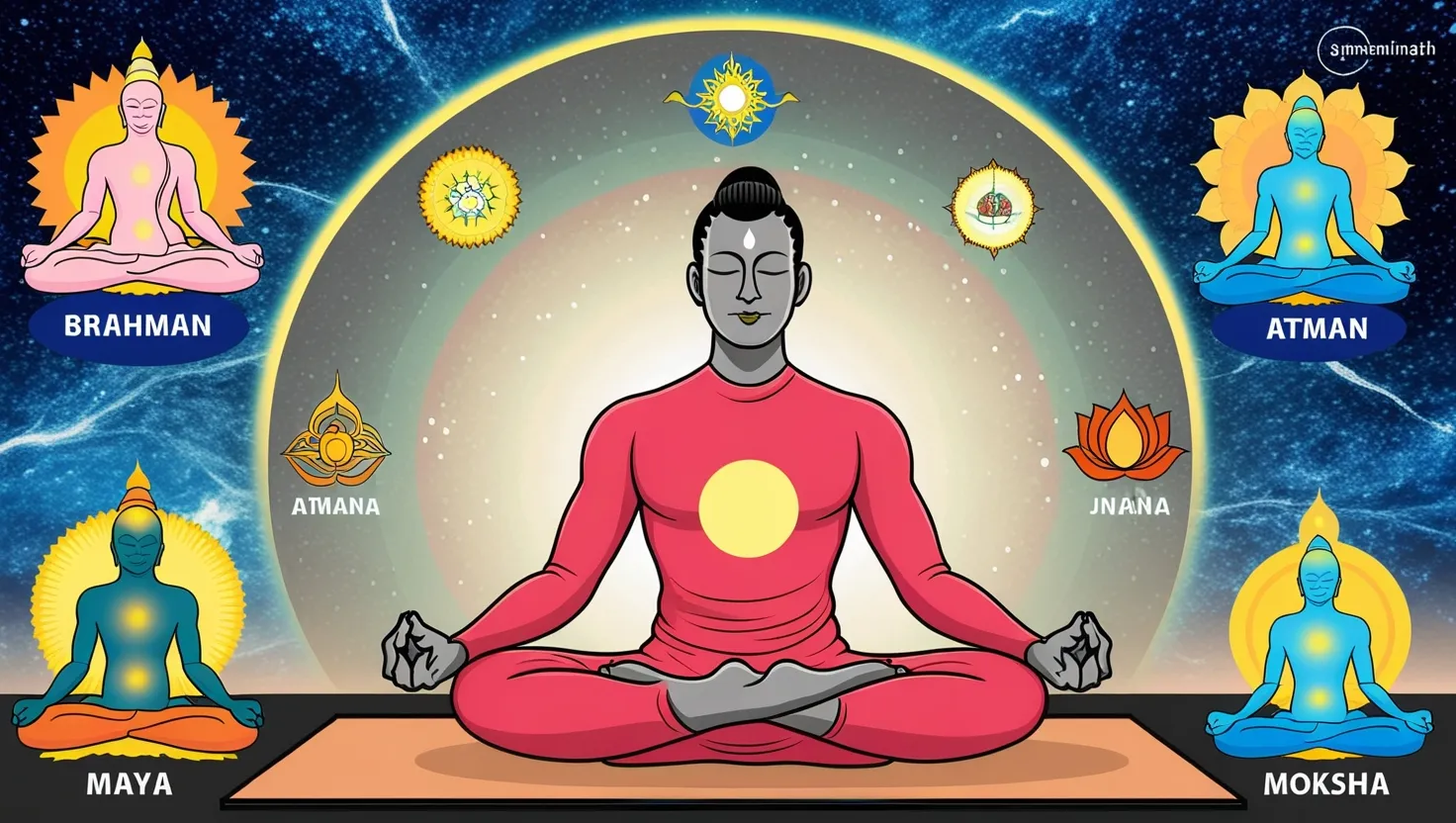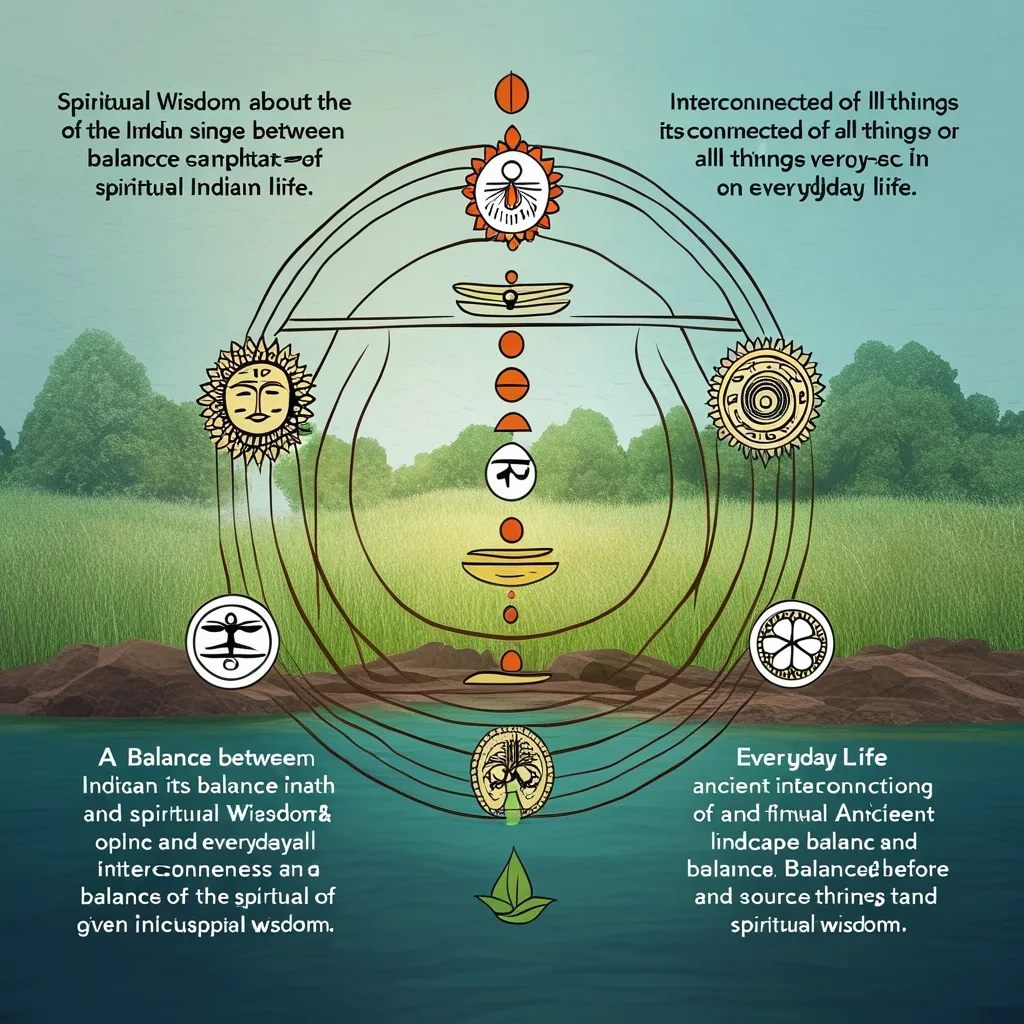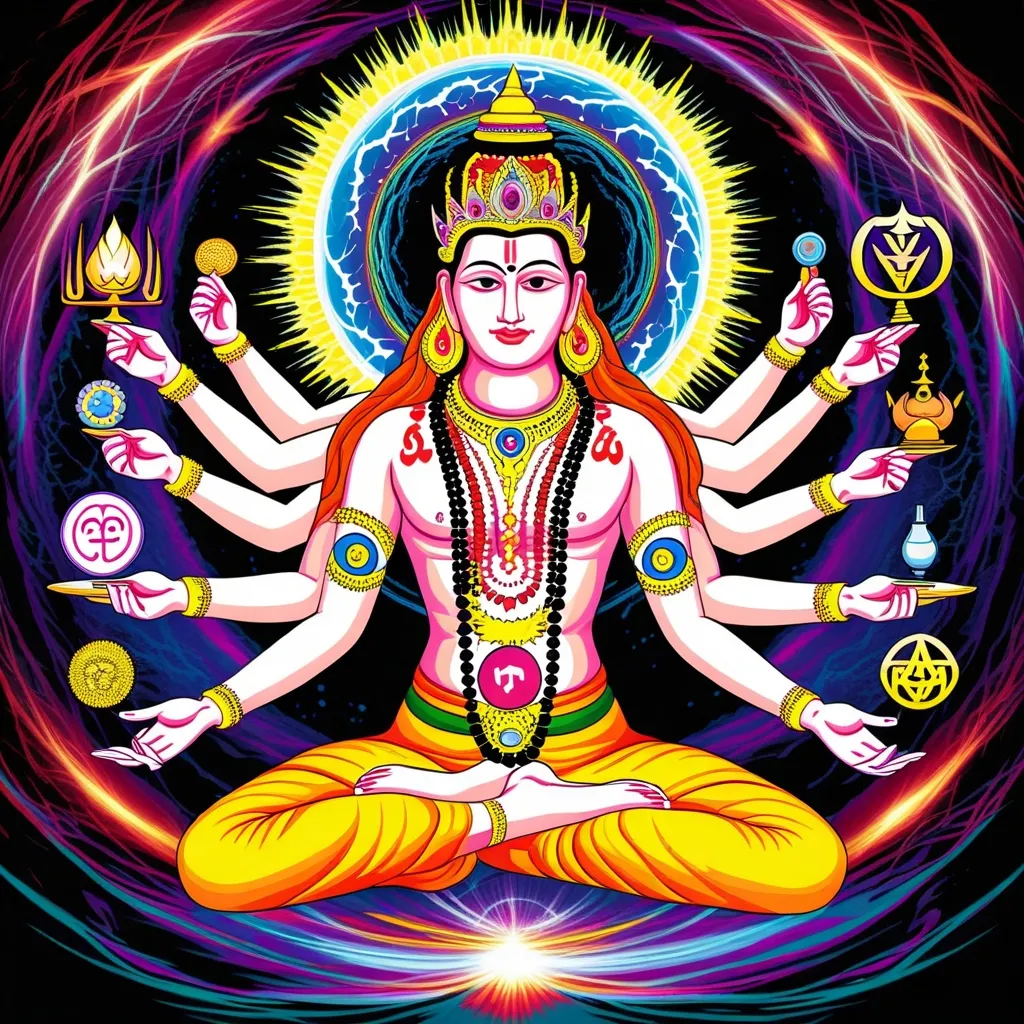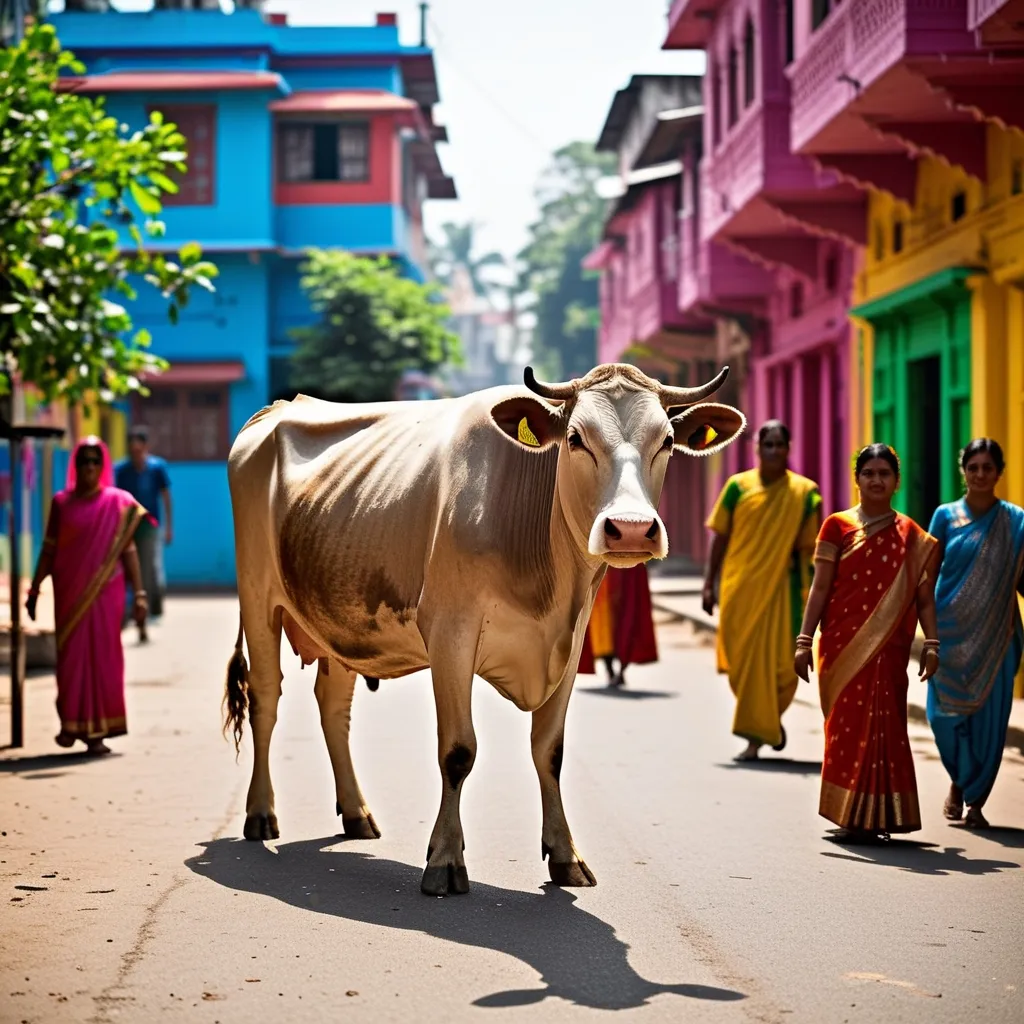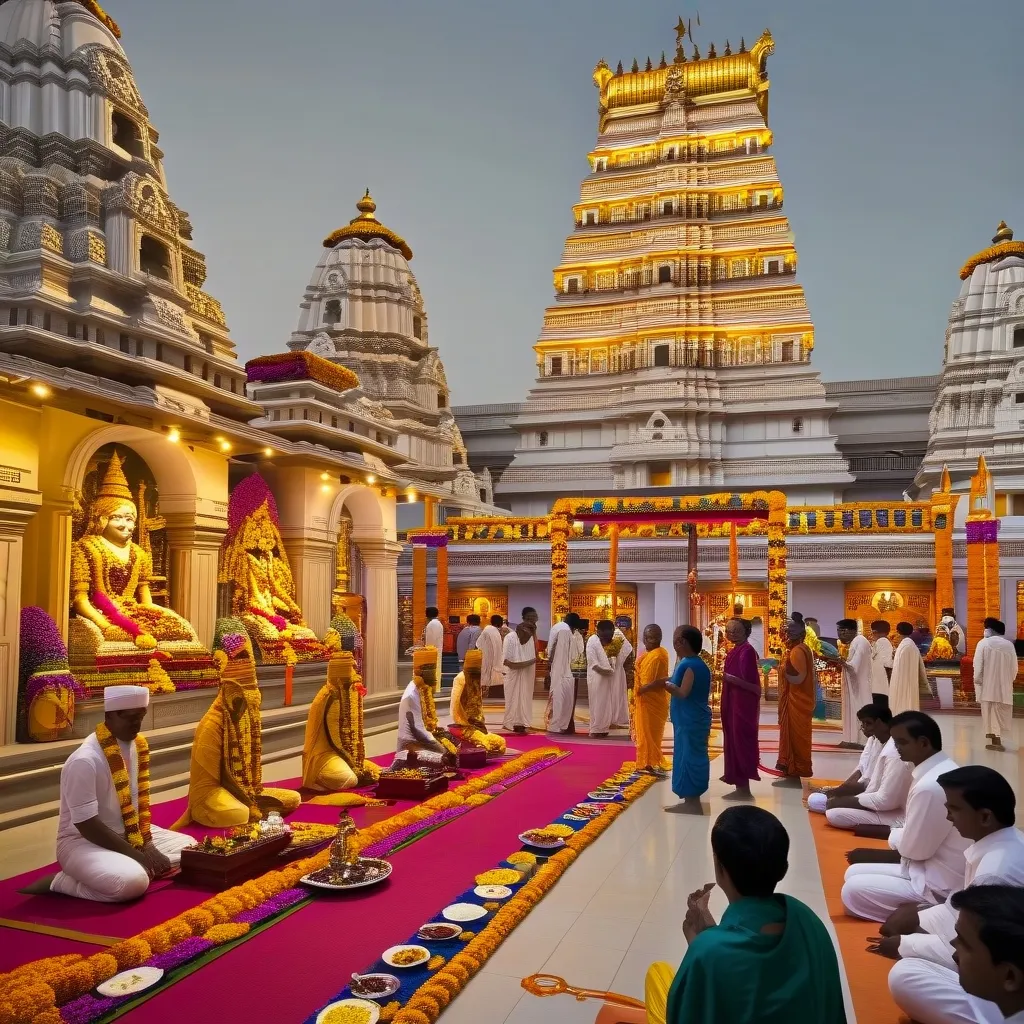In the vast and intricate landscape of Hindu philosophy, Vedanta stands as a beacon, guiding seekers toward the ultimate truth of their existence. This ancient wisdom, distilled over centuries, offers a profound and transformative journey of self-discovery. Here, we delve into five key concepts that form the heart of Vedantic philosophy, each a stepping stone on the path to self-realization.
At the very core of Vedanta lies the concept of Brahman, the ultimate reality that underpins all existence. Brahman is not just a philosophical abstraction; it is the living, pulsing essence that permeates every aspect of the universe. It is infinite, unchanging, and beyond the limits of human comprehension. Yet, it is this very Brahman that we are urged to realize as the highest goal of our spiritual endeavors.
But how do we connect with this elusive yet omnipresent reality? The answer lies in understanding the Atman, the individual self or soul. According to Vedanta, the Atman is not a separate entity from Brahman; rather, it is an integral part of it. The Atman is our true nature, a spark of the divine that resides within us. However, this truth is often shrouded by the veil of ignorance, making it a challenging yet crucial discovery for any spiritual seeker.
This veil of ignorance is what Vedanta terms as Maya, the principle of illusion. Maya creates the illusion of duality and separation, making us perceive a world of multiplicity when, in reality, all is one. It is the lens through which we view the world, a lens that distorts our perception and keeps us bound to the cycle of birth and death. Understanding and transcending Maya is essential for spiritual growth, as it allows us to see beyond the superficial layers of existence.
The journey to transcend Maya and realize our true nature as Atman-Brahman is facilitated by Jnana, or knowledge. In Vedanta, Jnana is not just intellectual comprehension; it is a direct, experiential understanding of one’s true nature. This knowledge is transformative, leading to liberation from the ignorance that binds us. It is the moment of clarity when the distinctions between the self and the ultimate reality dissolve, and we see the world and ourselves in a new, unified light.
Achieving this state of unified understanding is what Vedanta calls Moksha, the state of liberation from the cycle of birth and death. Moksha is not a place or a state of being; it is a realization – the realization that we are not bound by the limitations of the material world. It is the ultimate goal of Vedantic practice, a state where we are free from the attachments, desires, and fears that define our mundane existence.
To reach this state of Moksha, one must undergo a profound transformation. This transformation involves peeling away the layers of illusion that construct our identity. We must question who we truly are – is it our body, our mind, our emotions, or something beyond these ephemeral aspects? As we strip away these layers, we begin to realize that our true nature is not something that changes with time or circumstance; it is a state of pure existence, consciousness, and bliss.
This journey of self-realization is not a solitary path; it is guided by timeless wisdom and ancient texts. The concept of “Tat Tvam Asi” – “Thou art that” – encapsulates the essence of non-duality, reminding us that there is no separation between the individual self and the universal consciousness. This philosophy challenges our very understanding of self-identity, suggesting that our perceived separateness from the world is an illusion.
As we progress on this journey, we encounter various states of consciousness. The Fourth state, known as Turiya, is the state of self-consciousness where we realize our true nature as the Absolute. This realization is not a mere intellectual apprehension but a lived experience that transforms our understanding of existence.
The significance of this self-consciousness cannot be overstated. It is the sublime state where the seeker, devoid of egoism and delusion, overcomes the flaws of attachment and dualities. Here, one gains the knowledge of Existence, not as a mere concept but as a lived reality. This knowledge is the reservoir from which all other understanding flows, a state where the distinctions between the self and the world dissolve.
In this state of unity, we find freedom – freedom from the cycle of birth and death, freedom from the limitations of the material world. This freedom is not something we achieve; it is something we realize. It is the understanding that we were never bound in the first place, that our true nature has always been free.
Vedantic philosophy, with its rich tapestry of concepts, offers us a roadmap to this realization. It is a journey that is both personal and universal, a journey that challenges us to rethink who we are and our place in the universe. As we embark on this path, we find that the wisdom of Vedanta is not just a set of abstract ideas; it is a living, breathing guide that leads us to the very heart of existence.
In the end, the journey to self-realization is not about reaching a destination; it is about understanding the journey itself. It is about realizing that the ultimate truth was always within us, waiting to be discovered. And when we finally see this truth, we understand that we are not just individuals; we are part of a larger whole, a whole that is infinite, unchanging, and eternally present. This is the wisdom of Vedanta, a wisdom that continues to guide seekers in their quest for the ultimate truth.
